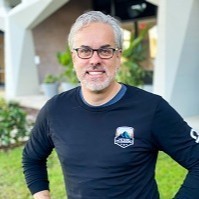Nov 29
2021
The Role of Locum Tenens In Healthcare

By Scott Beck, CEO, CHG Healthcare.
Thousands of physicians leave their homes every day and travel across the country to fill both short- and long-term needs. Called locum tenens, this group of traveling, temporary physicians often treat patients who would otherwise not receive care.
History of locums
The idea of a traveling, temporary physician was created in 1979 to help address rural physician burnout and the subsequent abandonment of practices. At the time many physicians didn’t have resources to take time off for CME courses, vacations or to even take a sick day. The University of Utah’s College of Medicine and Intermountain Healthcare created the Health Systems Research Institute. The institute’s purpose was to bring rural doctors to the University of Utah for courses to help them run their practices efficiently. The program assembled a network of doctors to cover the practices while the rural physicians were attending the program.
Word of the work being done by HSRI spread and soon there were demands for temporary coverage at facilities around the country and the locum tenens industry and the company that would eventually become CHG Healthcare was born.
Unmet needs /physician shortage
While the original need for locum tenens physicians was to give rural physicians a break, it quickly grew to meet any sort of physician staffing need. From urban areas with high patient volumes to rural communities unable to recruit permanent physicians, the need for temporary physicians was strong.
In more recent years we have seen shortages for all healthcare professionals, while patient needs have kept growing. According to the Association of American Medical Colleges the United States could see a shortage of between 37,800 and 124,000 physicians by 2034. These shortages continue to hit rural areas the hardest — often requiring patients to drive hundreds of miles to receive specialty care their local hospitals can no longer offer. Add to this the ongoing COVID-19 pandemic and its effects on healthcare providers is just making things worse.
Offering physicians alternatives
Locum tenens fills much needed roles in healthcare systems around the country but also provide an opportunity for physicians looking to alleviate their own burnout, work more or less hours, or just have more flexibility in their lives. Dr. Rip Patel, an emergency medicine physician who works locums full-time, has this to say about working locums:
“I started doing it and it kind of met all the standards that I wanted to do, the autonomy, the flexibility, really being independent and having control of my own practice and standards of practice for how I want to be a physician and how I want to take care of patients.”
Who works as locums?
The physicians who work locums come from all specialties and age groups. Some, like Dr. Patel, choose to make locums their full-time job, often working as much or more than a permanent physician would. Others, like general surgeon Dr. Blake Cashmore work locums in addition to their permanent jobs.
“Locums gave me the opportunity to take a mini weekend vacation — especially when the kids were younger. I’d go there and we’d go hiking and other things wherever we were and experience the community,” said Dr. Cashmore. “Also, I think it’s enjoyable to see how things are done at other places, to meet new people, and kind of see whether the grass is greener on the other side without having to extend yourself to something like actually looking for another job.”
Others work right out of residency as a way to test out different practices and settings. And on the flip side, many use locum tenens as a way to ease into retirement.
Locum tenens along with other traveling providers play a big role in healthcare for patients, physicians, and other providers. In addition to being a solution for provider burnout and helping with the physician shortage it also is a huge benefit to patients. In 2020, CHG Healthcare worked with more than 13,000 healthcare providers who cared for more than 25 million patients.